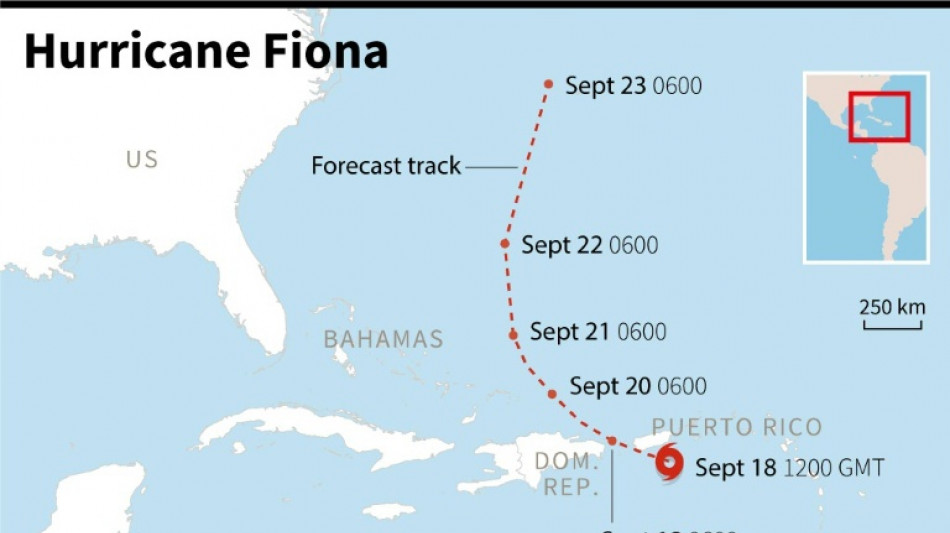
RBGPF
0.1600


Fiona strengthened into a hurricane on Sunday as it barreled down on the US island territory of Puerto Rico, which has been devastated by previous storms, the National Hurricane Center said.
Packing winds of 80 miles (130 kilometers) per hour, Fiona is forecast to strengthen further in the next 48 hours as it moves toward Puerto Rico and the Dominican Republic before heading north into the open waters of the Atlantic Ocean.
"Fiona becomes a hurricane," the NHC said in an advisory, warning that "torrential rains and mudslides (are) expected across Puerto Rico and the Dominican Republic."
"Additional strengthening is forecast during the next 48 hours while Fiona moves near Puerto Rico, the Dominican Republic and over the southwestern Atlantic," it said.
Puerto Rico and part of the Dominican Republic -- an island nation located to its west -- are under a hurricane warning.
This means "hurricane conditions are expected somewhere within the warning area, in this case within the next 24 hours," NHC said.
The National Weather Service's San Juan office also warned on Twitter of "life-threatening flash flooding of streams, highways and streets, as well as urban, low-lying and poorly drained areas."
The storm has already caused a fatality, with a man left dead when his house was swept away by flooding in the French overseas department of Guadeloupe, when Fiona was still classified as a tropical storm.
US President Joe Biden declared a state of emergency for Puerto Rico on Sunday as Fiona approached the island, authorizing the Federal Emergency Management Agency to provide assistance.
- 'Go to shelters' -
Puerto Rico's Governor Pedro Pierluisi told a news conference the previous day that "we are asking residents not to leave their homes and to go to shelters if they are in areas prone to landslides and flooding."
The island -- which has suffered from major infrastructure problems for years -- was hit by hurricanes Irma and Maria in 2017, devastating its electrical grid.
The grid was privatized in June 2021 in an effort to resolve the problem of blackouts, but the issue has persisted, and the entire island lost power earlier this year.
Power outages were hitting Puerto Rico even before the full force of Hurricane Fiona struck, with more than 388,000 people without electricity, according to tracking website poweroutage.us.
The former Spanish colony became a US territory in the late 19th century before gaining the status of associated free state in 1950.
After years of financial woes and recession, in 2017 the island declared the largest bankruptcy ever by a local US administration. Later that year, hurricanes Irma and Maria added to the island's woes, and sparked a feud between San Juan and Washington.
Then-president Donald Trump's administration was widely accused of failing to provide sufficient federal aid to Puerto Rico after Hurricane Maria struck.
Footage of him tossing paper towels to survivors during a visit to the island drew criticism, and Trump later claimed the storm's death toll had been inflated by Democrats to "make me look as bad as possible."
T.Maeda--JT